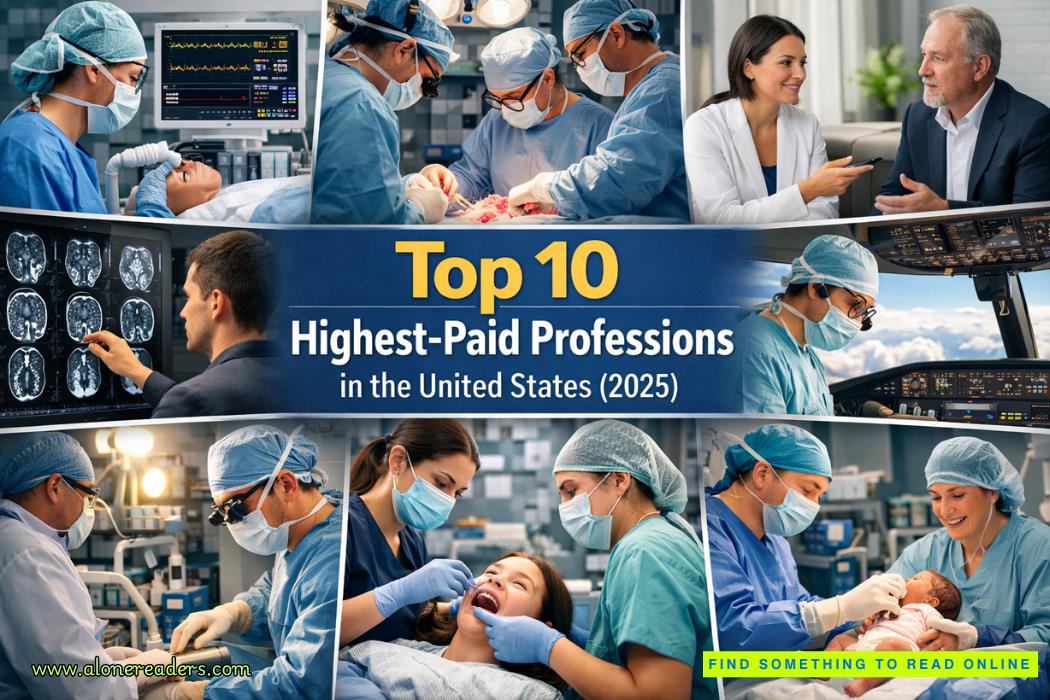I sit up, rub my swollen eyes, and reply: “That’s fine, Richard. Probably a good idea. We... um, we had a fight.”
“Yeah,” he says, sidling farther into the room. He gazes around, at what he probably now thinks of as his daughter’s space, and then focuses on me. “I gathered. These things happen. It’s reallyweird seeing you in here again. Mum says you’re thinking of sticking around?”
“I am, yes,” I say firmly, “me and Charlie. You’ve dealt with all of this on your own for too long.”
“All of this?” he echoes.
“Yes. Dad’s health, I mean. He’s going in to hospital, isn’t he? Mum will need some help when he comes out. It’s my turn.”
Richard sits down on the small chair by the dressing table, idly picks up a lip gloss, and stares at it as though he’s never seen such a thing in his life before.
“Okay. If that’s what you want. But... look, I don’t want to sound like a prick...”
“Stop talking then,” I snipe childishly. “Sorry.”
“That’s all right. It was a good line. But what I wanted to say was that we’ll be fine, you know. We’ve done okay without you. It was tough for all kinds of reasons, but the sky never fell in. Dad’s op is a big deal, but it’s also routine, and he’s pretty fit otherwise. Mum was planning to hire a nurse for the first few weeks and set up a bedroom downstairs for him, and he should be up and about before long anyway, better than new. She’s got it all under control.”
Of course she has, I think—she always has.Maybe I’ve been deluding myself imagining that she needs me, that I’ll be any help at all. Right now, I feel like neither use nor ornament.
“Right. Okay, thanks. I still think we’ll stay, though. But... again, thanks. And it’s fine for Charlie to come with you.”
Richard nods and makes his farewells, and I decide that I need to be busy.
I do some of the things I have been putting off, such as checking in with the insurance people, who tell me they have agreed to a part payment due to the complexity of the situation. I accept their offer, because I don’t have any energy left to fight aboutit, and some is better than none. I spend a long time looking at employment websites that cover the local area, and find that I’d have a lot more success if I was searching for a seasonal job in a cafe or a gift shop than I would anything substantial and permanent. The hidden side of the countryside idyll. There are a few possibilities though, including a data-processing role in Penzance, and one at a car-hire company near the airport that needs an admin manager. Neither of these exactly sets my heart on fire, but now I come to think of it, having your heart set on fire actually sounds really uncomfortable and potentially dangerous. I bookmark them, planning to apply for them when I feel less discombobulated by life.
By lunchtime, I see that my mum’s predictions look as though they will be correct, and the sky is darkening with clouds. It is strange, seeing anything but azure blue up there, and it reminds me that life here isn’t all picnics and sea swimming and cricket on the grass.
I check my bank balance, borrow Mum’s ancient but well-cared-for Toyota, and drive to a small retail park that lies off the A roads between us and the nearest town. There I purchase such exciting items as wellington boots, a light rain jacket, and a pink umbrella patterned with frogs. I invest in a new rain jacket for Charlie, as well as some walking boots—if I imagine he is staying, if I plan for it, then it will happen. I simply can’t allow myself to think otherwise. I am sure that he will calm down, that he will start to understand, that we can have a measured and reasoned conversation about it, rather than a screaming match. He is young, and he has been through a lot—but he is still Charlie.
I stay out for the rest of the day, because I am unused to retail therapy and am starting to see its appeal. It is the ultimate distraction from the stuff that really matters. I even call in at agarden center and buy some lupins—maybe Mum will donate a corner of her flower garden to me and I can have my own little flower patch. Maybe I will feel more settled, more solid, once I start to see things bloom around me.
When I get back to Foxgloves, I see that Joy is gone and remember that Luke was planning to visit the area around St. Ives today. I go back inside, put away all my new treasures, and leave the potted flowers outside. The rain has started to trickle down, and they will enjoy a nice drink until I can get them somewhere more permanent.
I forage for food for us all, and join Mum and Dad in watching a documentary about the birds of the Caribbean, each of us sitting with a tray on our lap eating plates of beans on toast. I feel like we are all in a nursing home.
I try not to think about Charlie, and what stage he is at in his come-down. I also resist the urge to call Rob and give him a verbal boot up the arse—it would be satisfying, but also, I know, extremely counterproductive.
It will help nobody if Charlie starts to see me purely as the enemy. I am starting to realize that pieces of our conversation this morning—if it really qualifies as a conversation—had distinct echoes of some of the rows I had with my own parents, and that didn’t exactly end well. It seems unlikely that Charlie will run off with a drummer and get pregnant, but I still know I need to be careful not to push him away. To back him into a corner. Of course, I see all this approximately ten hours after the fact, which is less helpful than having seen it that morning, when I was threatening to keep his passport and essentially hold him hostage. I am determined not to repeat the mistakes of the past, no matter how hard it feels. I don’t want him to go, but I understand that keeping someone against their will can end much worse.
By 8:00 p.m., there is still no sign of him, and the first real slivers of worry start to creep in. I try not to let my parents see it, and instead attempt to contact him on the phone. No answer. I send a quick message, but with the same result. Eventually, I resort to going through Mum’s address book by the phone in the hallway, and find Rebecca’s number.
I go back upstairs as I dial and, when she answers, realize how strange this is.
“Hi, Rebecca,” I say quietly. “It’s Jenny. I know I haven’t spoken to you for almost two decades, but... well, I was wondering if Charlie is still with you?”
She laughs and replies: “Jenny! Indeed, long time, no speak! I’m sorry I haven’t popped over yet—maybe we could go out for a drink sometime?”
“Yes, that would be lovely, thanks... but, Charlie?”
“Well, he was here, hanging out with the beasts—but he left maybe a couple of hours ago? The rain had started, and he borrowed Ethan’s bike. I offered him a lift, but he said no. Is everything all right?”
“Fine,” I reply breezily. “He’s probably just gone off to explore. I’m sure he’ll turn up any minute now.”
“I’m sure you’re right,” she says, but I hear a reflection of my own fear in her voice. Being the parent of a teenager is not for the fainthearted. “Let me know when he lands, all right?”
I assure her I will, and hang up. Two hours. On a bike, in the rain, in a place he still doesn’t really know very well. My brain immediately starts to conjure up a smorgasbord of disaster, and I make myself sit still, take some deep breaths. Going full psycho will not help me or Charlie.
I stand up, go to the window, and pull the curtains to one side. The sky is bruised gray, the rain coming down heavy andthick, and the frantic sway of the oak trees tells me the wind is up as well. I see that Luke is back, put on my new boots and jacket, and rush down the stairs. I can hear my parents in the living room, bickering about who last used the remote controls and where they are now, and make it past them without being spotted.















